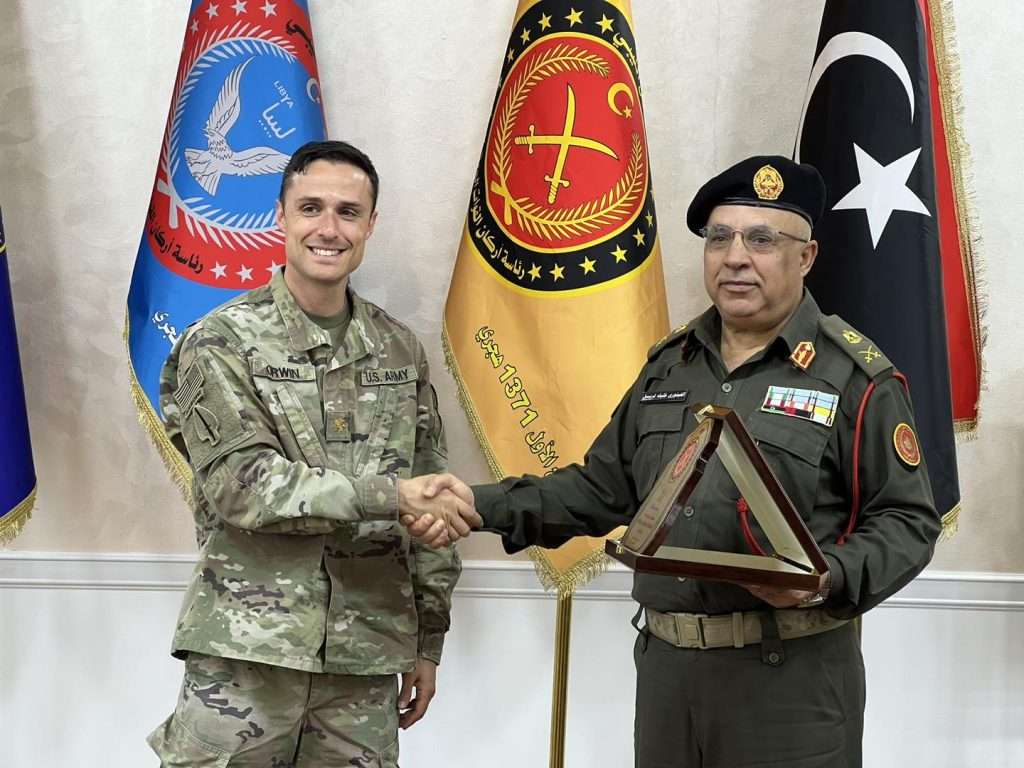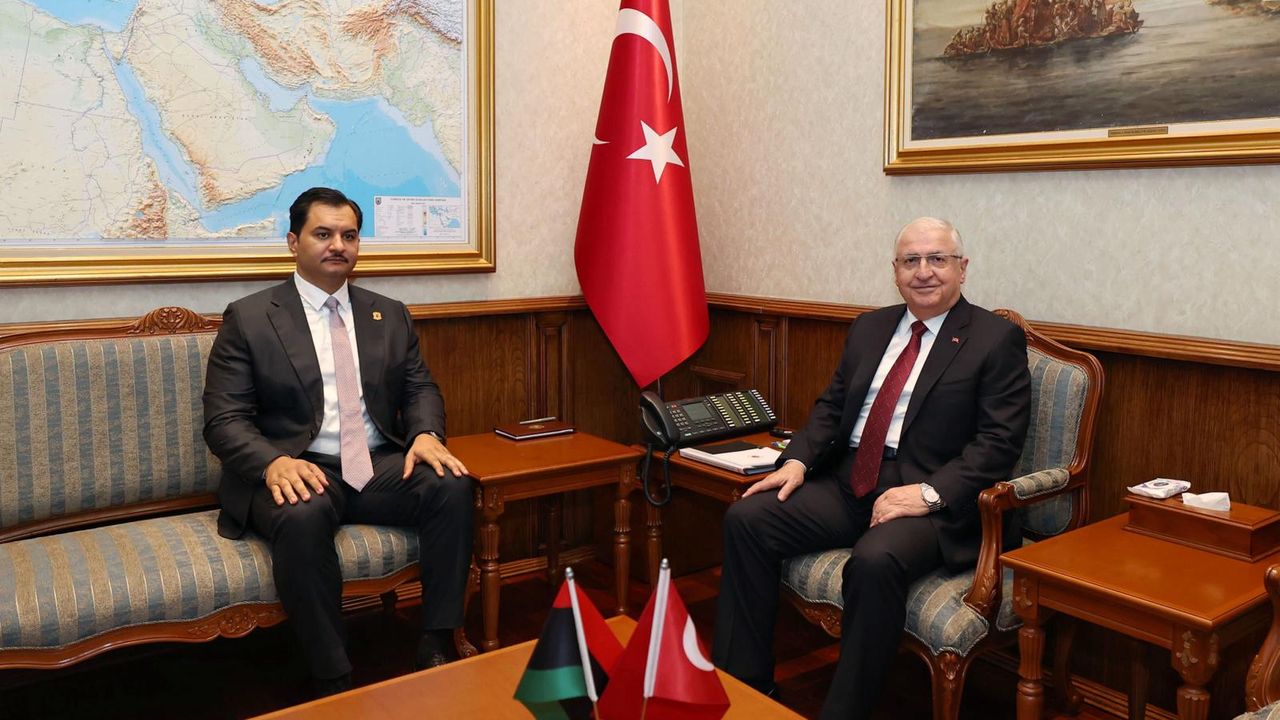Libya: US backs “united” military

During an April 8th visit to Misrata and Khoms, the US embassy in Libya said that “the US Defence Attaché delegation made productive visits to the Central Military Zone,” as-well-as “various important military and counterterrorism forces,” in a statement via X. The announcement also expressed continued support for Libyan security, sovereignty, and unification of its military, which has been decentralized since the country’s 2011 revolution.
US calls for a “united” military came as UN, Japanese, and French officials met in Libya, according to Asharq Al-Awsat.
Special Representative of the UN General-Secretary Abdoulaye Bathily said the officials “reviewed the current political, security, and economic landscape, and the challenges to advancing the political process, including forming a unified government, and that they “also touched on the situation in neighbouring countries and the possible impact on Libya.”
READ: Libya: Paramilitary groups claim they will leave Tripoli
Bathily also visited Jadu, an Amazigh town in western Libya, to meet with municipal leaders, stating: “Throughout my visits to numerous cities, engaging with a variety of citizens and cultural groups, I’ve discerned a clear desire among the Libyan people to resolve this crisis and achieve stability. The responsibility for the current division in the country squarely lies with its political leaders.”
“The time is now ripe for a political settlement and the formation of a unified government to lead the country until elections are completed,” he added.
The push for Libyan unity comes after Prime Minister Abdulhamid Al-Dbeibah, head of western Libya’s Tripoli administration, was targeted in a March 31st rocket attack on his residence, as reported by Reuters.
Dbeibah was unharmed in the attack, with no further casualties reported.
The prime minister’s UN-backed Government of National Unity (GNU) was installed in 2021 and administers western Libya. The country’s Benghazi-based parliament refused recognition of the GNU later the same year, after a failed attempt at orchestrating national elections.
READ: Libya: Dbeibah says he will only resign if elections take place
On March 10th, key leaders from the Tripoli and Benghazi administrations agreed on the necessity of unifying the country to facilitate long-delayed elections.
Libya has witnessed over a decade of civil conflict and instability since the NATO-backed overthrow of dictator Muammar Gaddafi, in 2011.
Asharq Al-Awsat / Reuters
Want to chase the pulse of North Africa?
Subscribe to receive our FREE weekly PDF magazine














